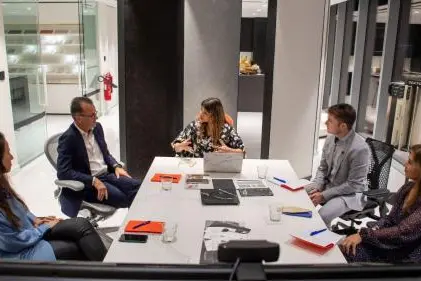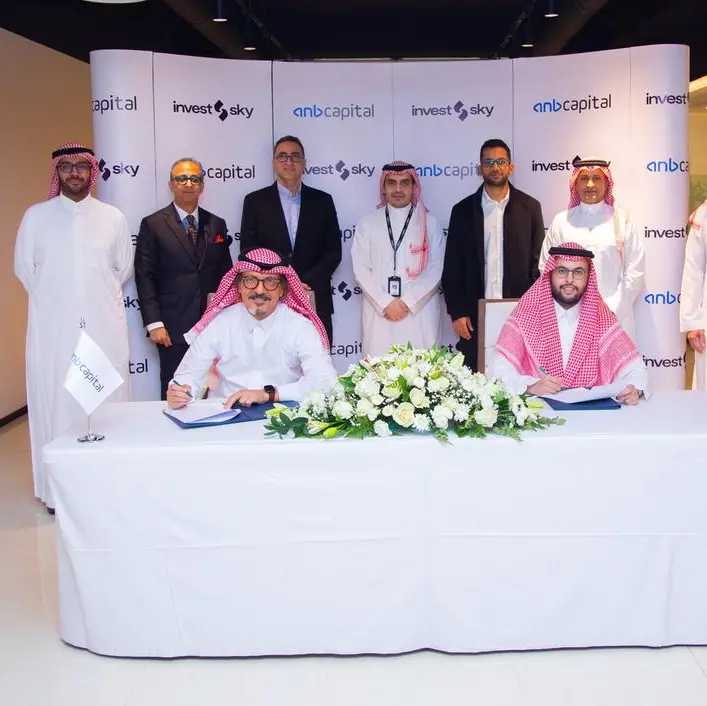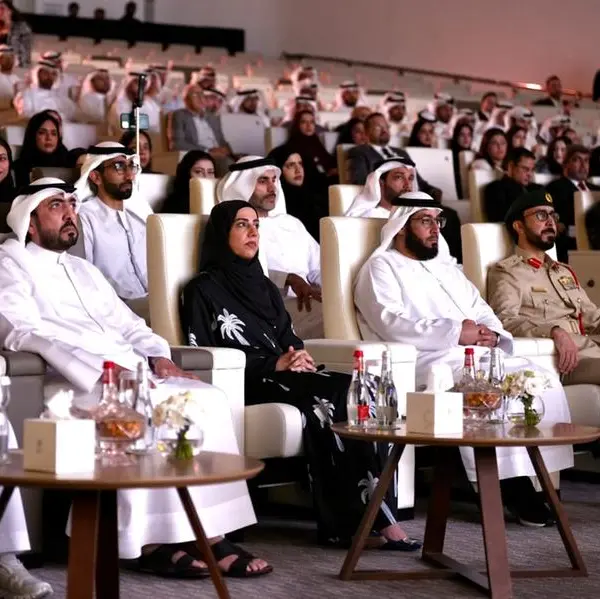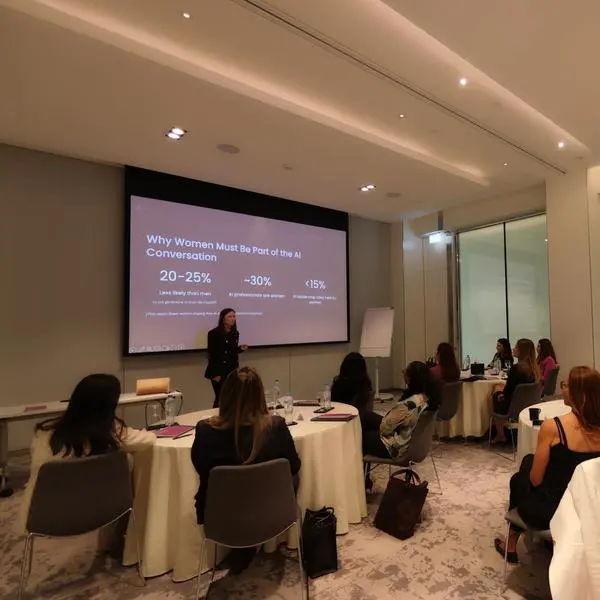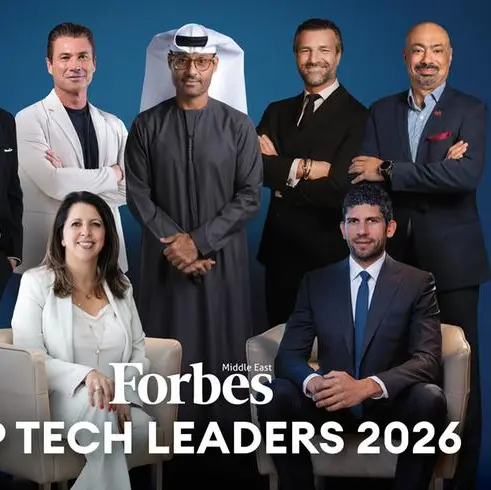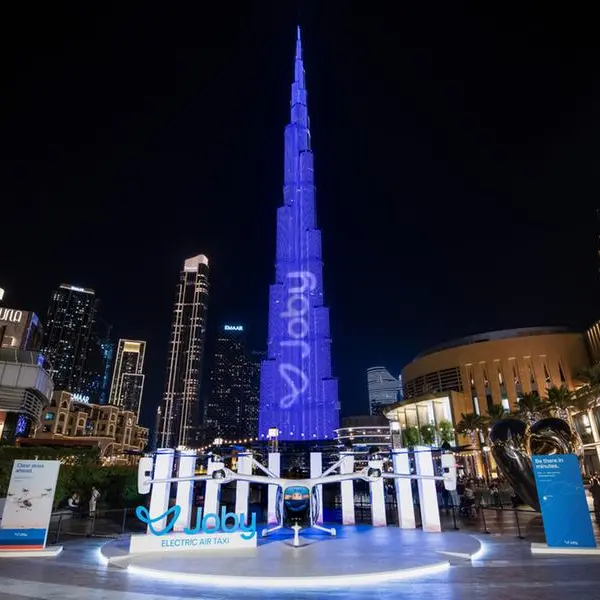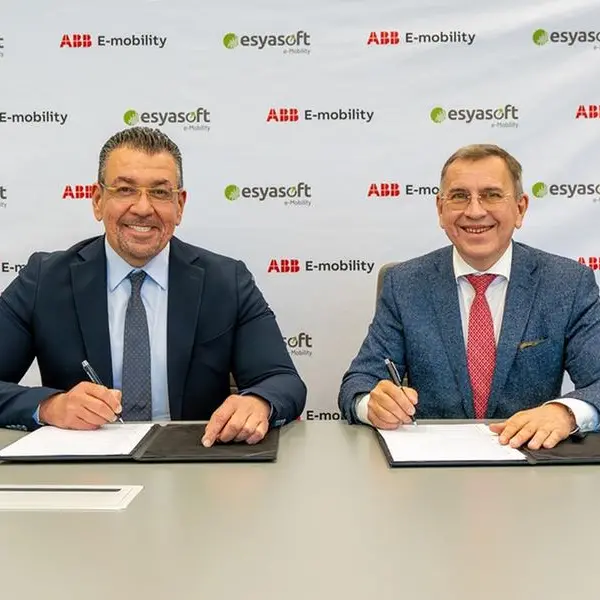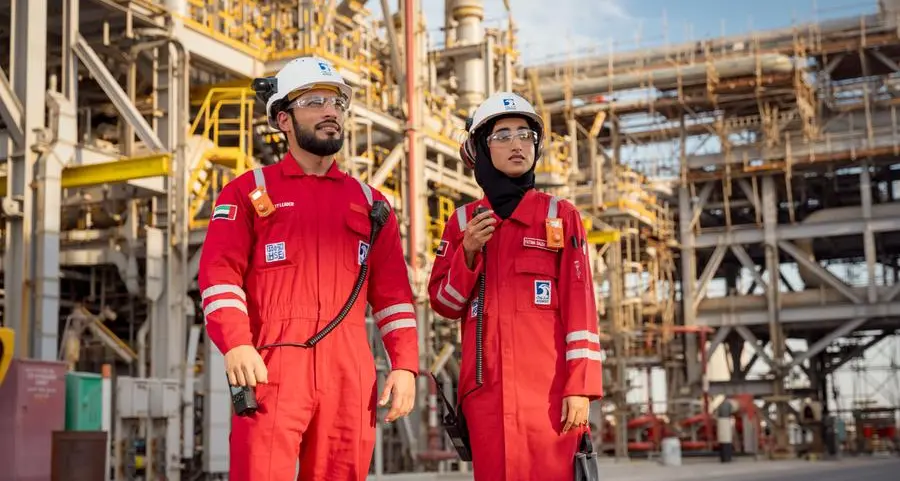PHOTO
UAE : Leading design brand and furniture manufacturer Herman Miller, which is part of the MillerKnoll collective, recently partnered with Love That Design to discuss the importance of sustainability in the built environment. During the event at the Cosentino showroom in d3, experts on sustainability, architecture, and design, discussed the planet’s depleting resources, sustainable design, what innovative manufacturing processes are currently working, and how we can all do our part in designing out waste.
The event also marked the introduction of ocean-bound plastic across Herman Miller’s iconic Aeron Chair portfolio and the launch of a new color, Aeron Onyx. Ocean-bound plastic, or mismanaged plastic waste found near waterways, will also continue to be incorporated into other product and packaging solutions as part of the company’s commitment to use 50% recycled content in all materials by 2030.
Herman Miller is using ocean-bound plastic in its returnable and reusable shipping containers, textiles, and a select range of storage components. By integrating ocean-bound plastic into all these products and packaging solutions, Herman Miller estimates it will divert up to 234 metric tons of plastic from the ocean annually, equal to preventing close to 400,000 milk jugs or up to 23 million plastic bottles from entering the ocean annually1.
“Ocean plastic is a massive problem – an 86 million metric ton problem to be precise,” said Scott Charon, Sustainability Manager, Global Product Innovation, Herman Miller. “It is equivalent to one garbage truck of plastic being dumped in the ocean every minute. Herman Miller is tackling this head on through our membership in the Next Wave Consortium and prioritizing ocean-bound plastic and recycled content in new and existing products.”
Ocean-bound plastic is plastic material that has not yet found its way into the ocean and is classified as "mismanaged waste." This is plastic that is not being collected, is unlikely to be collected, and is found within 50 kilometers of a coastline. Common examples of ocean-bound plastic include plastic bottles, jugs, caps, and fishing gear.
“At Herman Miller, we aim to preserve the environment for future generations,” says Charon. “When it comes to product innovation, we focus a lot on the Cradle-to-Cradle methodology, which involves taking a deep dive into chemistry, looking at recyclability and making sure we have a closed loop system.”
Marcos Bish, Managing Director, Summertown Interiors stated "There's a lot of passion around sustainability and I often meet like-minded people who want to create partnerships as much as possible. We're making a lot of progress, but there's still a long way to go. By working together, we can go further."
Ben Ashton, Associate at BDP, and Nour Toubia, Senior Interior Designer at Gensler both agreed that big changes within sustainability is coming to the region. Lindsey Malcolm, Associate Director at AESG and Dina Storey, Director of Sustainability at Expo also added that there needs to be a change in perspective within the industry as a whole.
Stacy Stewart, Regional Director MEA at Herman Miller, looks at it holistically: We have started including ocean-bound plastic in our products, but the more manufacturers we can encourage to adopt that strategy, the better. Because then, these supply chains that provide the ocean bound plastic will become more robust.”
The roundtable eventually showcased that all players involved in a project must take every opportunity they can to educate and engage. Manufacturers and contractors need to be as transparent as possible, and clients and designers should be on the same page. If cost is an issue, communicating this early on will help balance trade-offs, and hopefully not disengage on any sustainable aspects./
-Ends-
About Herman Miller
Herman Miller is a globally recognised leader in design. Since its inception in 1905, the company’s innovative, problem-solving designs and furnishings have inspired the best in people. Herman Miller is guided by an enduring legacy of design, innovation, and social good. In 2021, Herman Miller and Knoll created MillerKnoll, a collective of dynamic brands that comes together to design the world we live in.
About MillerKnoll
MillerKnoll is a collective of dynamic brands that comes together to design the world we live in. Powering the world’s most dynamic design brands, MillerKnoll includes Herman Miller and Knoll, plus Colebrook Bosson Saunders, DatesWeiser, Design Within Reach, Edelman Leather, Fully, Geiger, HAY, Holly Hunt, Maars Living Walls, Maharam, Muuto, naughtone, and Spinneybeck|FilzFelt. Together we are redefining modern design for the 21st century and changing the world for the better. As MillerKnoll, we form an unparalleled platform from which to imagine a more sustainable, caring, and beautiful world for everyone.
© Press Release 2022
Disclaimer: The contents of this press release was provided from an external third party provider. This website is not responsible for, and does not control, such external content. This content is provided on an “as is” and “as available” basis and has not been edited in any way. Neither this website nor our affiliates guarantee the accuracy of or endorse the views or opinions expressed in this press release.
The press release is provided for informational purposes only. The content does not provide tax, legal or investment advice or opinion regarding the suitability, value or profitability of any particular security, portfolio or investment strategy. Neither this website nor our affiliates shall be liable for any errors or inaccuracies in the content, or for any actions taken by you in reliance thereon. You expressly agree that your use of the information within this article is at your sole risk.
To the fullest extent permitted by applicable law, this website, its parent company, its subsidiaries, its affiliates and the respective shareholders, directors, officers, employees, agents, advertisers, content providers and licensors will not be liable (jointly or severally) to you for any direct, indirect, consequential, special, incidental, punitive or exemplary damages, including without limitation, lost profits, lost savings and lost revenues, whether in negligence, tort, contract or any other theory of liability, even if the parties have been advised of the possibility or could have foreseen any such damages.
